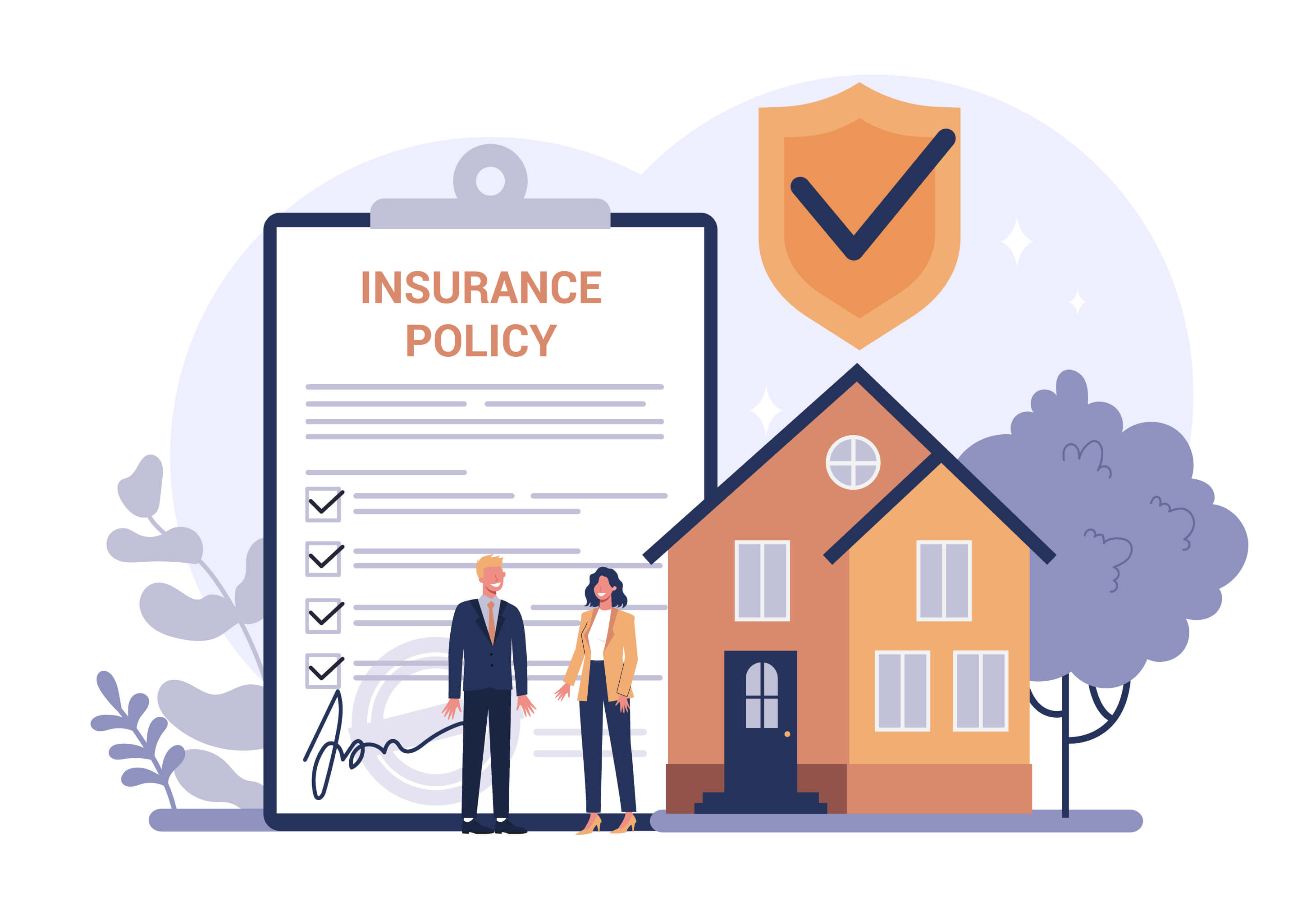The Pros and Cons of Umbrella Insurance: Is It Worth It?
Umbrella insurance is a type of liability insurance that provides coverage beyond the limits of your standard insurance policies, such as homeowners, auto, or renters insurance. It offers an extra layer of protection when the costs of a claim exceed your primary policy limits, potentially saving you from financial ruin in the event of a major lawsuit. However, like any insurance product, umbrella insurance has its pros and cons. In this article, we will explore what umbrella insurance is, its benefits and drawbacks, and whether it’s worth it for you.
What Is Umbrella Insurance?
Umbrella insurance is designed to protect you from large liability claims or lawsuits that surpass the coverage limits of your existing policies. It covers not only you but also your family members and even certain situations that aren’t covered by your standard policies, such as defamation lawsuits.
.png)
For example, if you are involved in a car accident and the damages or injuries exceed the coverage limits of your auto insurance, an umbrella policy will step in to cover the remaining costs. This can be critical in situations where you’re held responsible for significant damages, as it shields your personal assets, such as your home, savings, and investments.
Umbrella insurance policies typically start at $1 million in coverage and can go as high as $10 million or more, depending on your needs.
The Pros of Umbrella Insurance
1. Extends Coverage Beyond Primary Policies
One of the primary advantages of umbrella insurance is that it extends your coverage beyond the limits of your existing policies. For example, if you have $500,000 in liability coverage under your homeowners insurance but are sued for $1 million, your umbrella policy can cover the remaining $500,000. This ensures that you are not left paying out-of-pocket for the excess damages, which could lead to significant financial hardship.
2. Affordable Premiums for High Coverage Limits
Despite the high level of coverage offered, umbrella insurance is relatively affordable. Premiums generally range from $150 to $300 annually for $1 million in coverage, with incremental increases for higher limits. This affordability makes it an attractive option for individuals seeking additional protection for a low cost.
.png)
Compared to the amount of coverage it provides, umbrella insurance is a cost-effective way to safeguard your finances from large lawsuits, medical expenses, or damages that your standard policies may not fully cover.
3. Covers a Wide Range of Incidents
Umbrella insurance doesn’t just cover incidents related to your home or vehicle. It also extends to a wide range of liability claims, including:
-
Defamation (Libel and Slander): If someone sues you for defamation, umbrella insurance can cover legal fees and damages.
-
Property Damage: It covers damage you cause to other people’s property, beyond the limits of your homeowners or renters insurance.
-
Bodily Injury: This includes incidents where someone is injured on your property or as a result of an accident involving you or a family member.
-
False Arrest or Malicious Prosecution: It can also provide coverage if you’re wrongfully arrested or sued.
This broad range of coverage makes umbrella insurance an excellent option for individuals who want comprehensive liability protection.
4. Protects Your Personal Assets
A significant benefit of umbrella insurance is the protection it offers to your personal assets. If you are held liable for damages that exceed your primary insurance policy limits, your savings, home equity, retirement accounts, and other assets could be at risk of being seized to satisfy a judgment. Umbrella insurance helps safeguard these assets by covering the excess liability, ensuring that your financial future remains secure.
5. Covers Family Members
Most umbrella insurance policies extend coverage to family members, such as your spouse or children, if they are sued for personal liability. This is particularly beneficial if you have teenage drivers in your household, as they are statistically more likely to be involved in accidents that could lead to costly lawsuits. With umbrella insurance, your entire family can be protected under one policy.
The Cons of Umbrella Insurance
1. Not a Standalone Policy
Umbrella insurance is not a standalone policy. You cannot purchase it without already having underlying coverage, such as homeowners or auto insurance. In fact, many insurance companies require you to carry a minimum level of coverage on your primary policies before you can qualify for umbrella insurance.
For example, your auto insurance may need to have a minimum of $300,000 in liability coverage before an umbrella policy can be added. If your current policies don’t meet these thresholds, you may need to increase your coverage levels, which could raise your overall insurance costs.
2. Doesn’t Cover Personal Property or Intentional Acts
While umbrella insurance covers a wide range of liabilities, it does not cover damage to your own property. If your home is damaged or your vehicle is totaled in an accident, umbrella insurance won’t help pay for repairs or replacements.
Additionally, umbrella insurance does not cover intentional acts of harm or damage. If you are found to have caused harm or damage deliberately, your umbrella policy will not cover the related expenses.
3. Potential Gaps in Coverage
While umbrella insurance provides broad liability coverage, it may not cover every possible scenario. Some exclusions may apply depending on the specific policy. For example, it may not cover certain professional activities if you own a business or engage in freelance work. If you frequently use your home or vehicle for business purposes, you may need a separate business insurance policy for those liabilities.
It’s essential to read the terms and conditions of an umbrella policy carefully to understand what is and isn’t covered.
4. Limited Coverage for International Incidents
While some umbrella insurance policies provide worldwide coverage, others may have geographic limitations. For individuals who travel frequently or own property abroad, it’s important to verify whether the umbrella policy extends to incidents that occur outside of the country. If it doesn’t, you may need to explore additional international insurance options.
5. Additional Cost for Peace of Mind
Although umbrella insurance is relatively inexpensive for the amount of coverage it provides, it is still an additional cost. Some individuals may never experience a situation where they need the extra liability protection, making the added expense seem unnecessary. In such cases, individuals with limited assets or lower risk profiles may question whether the extra coverage is worth the cost.
.png)
Who Should Consider Umbrella Insurance?
Given the potential benefits and limitations of umbrella insurance, it may not be necessary for everyone. However, certain individuals are more likely to benefit from this additional protection. If any of the following apply to you, umbrella insurance may be worth considering:
-
High Net Worth Individuals: If you have significant assets, such as real estate, investments, or savings, umbrella insurance is a crucial safeguard to protect those assets from being used to pay for large liability claims.
-
Homeowners: Owning a home comes with a range of liability risks, such as accidents on your property. Umbrella insurance can cover the costs of any claims that exceed your homeowners insurance limits.
-
Teen Drivers: Parents of teenage drivers may benefit from the extra coverage provided by umbrella insurance, as young drivers are at higher risk for accidents.
-
Frequent Hosts: If you frequently host guests or rent out your property on platforms like Airbnb, you could be at a higher risk for liability claims.
-
Pet Owners: Dog owners may face lawsuits if their pet injures someone. Umbrella insurance can cover the costs of such incidents.
Conclusion: Is Umbrella Insurance Worth It?
Whether umbrella insurance is worth it depends on your individual financial situation, assets, and risk exposure. For individuals with significant assets or higher liability risks—such as homeowners, landlords, or those with teenage drivers—umbrella insurance can provide an affordable way to protect against financial ruin from large lawsuits. Its affordability relative to the coverage it provides makes it an attractive option for anyone looking to safeguard their financial future.
However, if you have limited assets or a lower risk profile, umbrella insurance may not be necessary. It’s essential to assess your needs, evaluate your current coverage, and consult with an insurance professional to determine whether umbrella insurance is a worthwhile investment for you.
LATEST

Last updated: Aug 31, 2024

Last updated: Aug 20, 2024

Last updated: Sep 5, 2024

Last updated: Aug 31, 2024
.png)
Last updated: Aug 31, 2024

Last updated: Aug 31, 2024
